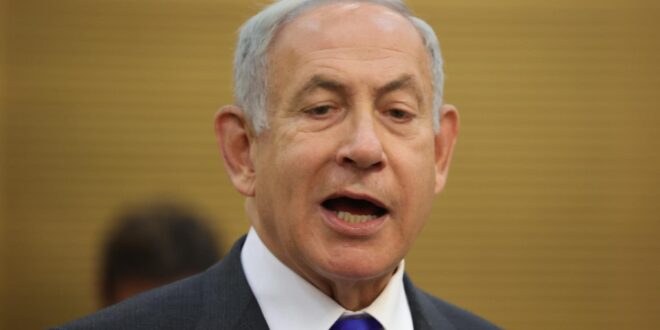Israeli Prime Minister Benjamin Netanyahu is visiting Washington for the first time since the conflict in Gaza began in November 2023, amidst potentially historic turbulence and upheaval in the U.S. political scene due to President Joe Biden’s exit from the presidential race.
Netanyahu plans to meet with Biden, but under these circumstances, he appears set to be the first foreign leader to “promote” Vice President Kamala Harris in her new role as the likely Democratic candidate for the U.S. presidency, as a meeting with her has also been announced. He will meet and speak with her separately from Biden.
“I am traveling to Washington on a very important visit at a delicate moment, at a time when Israel is at war on seven fronts, and the U.S. is experiencing considerable political uncertainty,” said Netanyahu.
I Times of Israel also reports that Netanyahu is arriving in Washington “amidst American political turmoil” following the recent assassination of Donald Trump and Joe Biden’s withdrawal from the presidential race. Prime Minister Netanyahu arranged his visit before these significant changes in the U.S. political scene, and it is expected that he will also meet with the Republican presidential candidate, Donald Trump, with whom he had “very good” cooperation during his first term. According to some analysts, Trump is much more acceptable to Netanyahu and the radical right-wing parties in the Israeli government than the conciliatory Joe Biden or the Democratic candidate.
As Jonathan Rynhold, a political scientist at Bar-Ilan University in Israel, told Voice of America, “there is no doubt” who Prime Minister Netanyahu supports in the elections. Israeli political scientist Nimrod Goren believes that Netanyahu wants to dispel any notion of disagreements between him and Trump, while Israeli media report that Netanyahu aims to “secure” himself in case of a change at the White House.
However, Netanyahu is now interested in understanding Kamala Harris’s stance on the Gaza situation, as it is anticipated that the conflict in the Middle East could become a significant foreign policy issue in her election campaign. Upon arriving in Washington, Netanyahu emphasized the importance of “strengthening bipartisan” support for Israel, ensuring that Democratic and Republican policies do not diverge too much regarding Israel, especially concerning the current situation in Gaza.
Netanyahu’s visit comes at a time when the intensity of the conflict with the radical terrorist group Hamas in Gaza, which has been ongoing since October 2023, has diminished. The IDF has yet to complete its offensive in Rafah, and prospects for a ceasefire, which the U.S. has been trying to broker with leading Arab states for months, are weakening. As a reminder, in mid-July, President Biden indicated that “the outlines of an agreement” for a ceasefire and the release of Israeli hostages held by Hamas were emerging (both sides had tentatively agreed), but a formal agreement has yet to be reached.
The fighting with the pro-Iranian terrorist group Hezbollah in southern Lebanon has reignited, with the threat of escalation in that region as well. Many analysts suggest that this could develop into a new war, further complicating the situation in the Middle East. Recently, Tel Aviv was also targeted by attacks from pro-Iranian Houthi rebels (Ansar Allah) from Yemen, who have been disrupting navigation in the Red Sea. In response, Israel bombarded their targets, including the port of Al-Hudaida on July 20, and the Houthis retaliated on July 21 by attacking the Israeli port of Eilat with drones.
As Netanyahu navigates the new political dynamics in Washington, striving to maintain “good relations” with everyone, the Israeli military has ordered the evacuation of some civilians from the humanitarian zone in southern Gaza, according to Al Mavasiu. They plan to resume the “final offensive” against what they term the “remnants” of Hamas. Israel has already conducted several rocket attacks on the area in preparation for a ground operation that is now anticipated. Hamas’s Ministry of Health has reported that approximately 90 Palestinian civilians have been killed in these airstrikes, according to Jutarnji.
 Eurasia Press & News
Eurasia Press & News




